Student fellows join school task force focused on racial justice and equity
The VCU School of Social Work has selected students for new Radical Alliance for Anti-Racism, Change and Equity (RAACE) student fellowships as part of efforts in the school to conduct a self-examination of oppression and anti-Blackness.
The students represent the Association of Black Social Workers at VCU student organization and the school’s three academic programs. Selected fellows include Oscar Kemp, ABSW; Meghan Mallampati, M.S.W. Program; Jennifer Murphy, Ph.D. Program; Francesca Spencer, M.S.W. Program; and Ruth Tiguh, B.S.W. Program.
The fellows are part of the Radical Alliance for Anti-Racism, Change and Equity (RAACE), formed in Fall 2020, whose work is guided by the following principles: decentralizing traditional structures of power and privilege; collective work and responsibility; trickle-up social justice; emergence; dismantling anti-Blackness; and building community through an ethic of care. The group includes representation from faculty, staff, adjunct instructors and alumni, as well.
“We believe that student voices are essential to any effort aimed at shifting the environment at the School of Social Work,” say Daryl Fraser, M.S.W., and Alex Wagaman, Ph.D., RAACE co-chairs and school faculty. “Students have long been calling us to do better around racial justice. Now they can help lead this work.”
The school’s dean, Beth Angell, Ph.D., also emphasized the importance of listening to student voices and providing opportunities for direct action.
“The group was created to guide our school in building an inclusive and equity-focused culture with the collective capacity to transform our curriculum, policies and practices,” Angell says. “The urgency to address and challenge our own part in perpetuating systemic racism was fueled by our students, so it is essential that our effort involve students as integral members. Each of these inaugural Racial Justice Fellows brings the passion, diversity of life experience and innovative thinking that will help ensure the success of this incredibly important initiative, and I look forward to joining them in the work that lies ahead.”
Each student will receive a $1,000 stipend for their participation across the 2020-2021 academic year. Fellows will support the initiative in developing an integrated framework for cultural and structural shifts to meet the needs of school staff, faculty, students and community in ways that center racial justice and healing.
Here are comments from each of the fellows on why they applied, what they hope to accomplish and how they can help the process.
Oscar Kemp, ABSW
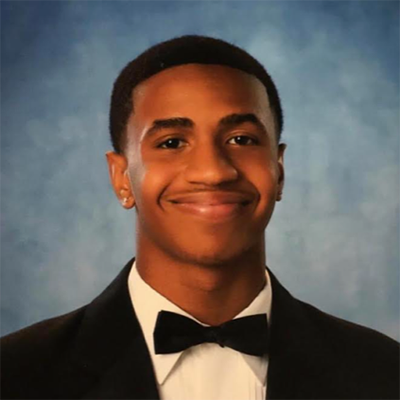
“Racial justice is important in a school of social work because of the nature of the profession. We, as potential social workers and other field occupations, need to be able to navigate racial justice beyond our professional boundaries. Social work is not a profession that ever has down time. It is critical that we understand that racial injustices are present in more than just collegiate environments. Racial justice is particularly important in a school of social work because we are the leaders promoting change across all systems of society. We must be able to have these difficult conversations when they are needed the most. Right now these conversations need to take place in our own community because there are obvious shortcomings in regards to racial justice. The importance of racial justice in a school of social work is rooted in the fact that we are the change and facilitators of difficult conversations needed in our own community and America. …
“I imagine using this experience in my own career as a social worker to learn more about myself and how I might be able to help other communities understand racial justice, too. I know of many communities in my personal life that need to have a conversation about systems of oppression and anti-Blackness.”
Meghan Mallampati, M.S.W.
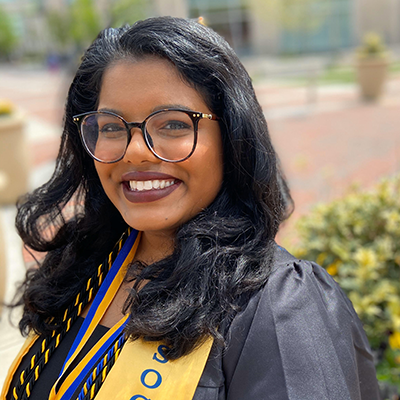
“I applied to this program because I feel as though student input can be highly beneficial in order to create holistic change. The main reason I am interested in this fellowship is due to my identity as an Indian woman in both the B.S.W. and M.S.W. programs, as well as my experiences as a student who has helped educate peers on anti-racism. I wanted to be able to provide a different perspective on racial justice, with intersectionality in mind, in order to help influence anti-racist reform.
“I think this is a great program for the school to support since our profession has the capacity to not only influence but facilitate healing in the lives of many. The task of ensuring that future social workers are able to not only understand their own bias, but operate through an anti-racist framework is crucial. I hope to grow as a social worker and an active member of our academic and interpersonal community.”
Jen Murphy, Ph.D.
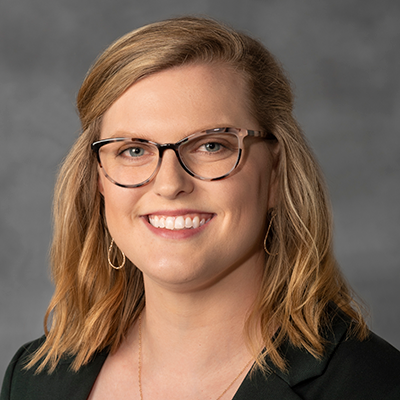
“The field of social work is entrenched with white saviorism, therefore it is critical that, particularly, white students and faculty work to unlearn the racism that our biases perpetuate in the learning environment and consequently our profession. The voices of Black and Brown students, faculty and community members are essential to the field of social work, and it is the duty of those with privilege to ensure those voices are prioritized in the classroom and beyond. …
“While I believe my skills in conflict resolution from a restorative framework would be an asset to the task force, my work in community building would also allow the School of Social Work to begin developing a cultural shift towards healing and understanding. While conflict resolution is an essential first step towards healing, the foundation of restorative practices is community building. When groups have a strong sense of community and safety, conflicts and harmful events are less likely to occur. However, when conflict does arise, restorative practices encourage the group to manage it in a way that promotes healing and attempts to collectively establish a positive change from the issue. With my background in the restorative framework, I hope my perspective will help the group establish a sense of community.”
Francesca Spencer, M.S.W.
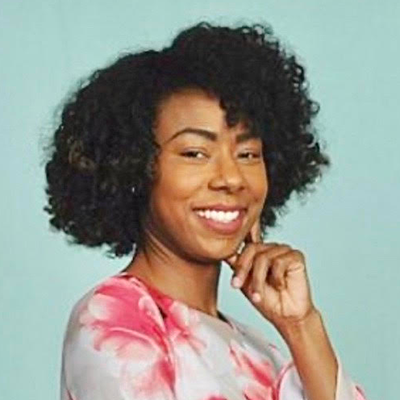
“As a social worker, I imagine using the fellowship experience as a highly esteemed tool in my toolbox. Working as a social justice change agent; being an integral part of the framework for racial justice and systemic healing; paradigm shifts for the university and community at large are strongly beneficial to me. …
“I have been birthed, read, watched and lived through the generational cycles created by systemic racism that stem from 1619 to the present. Knowing that no matter how much status, education, equity or relationships I acquire, I have, and may always be subjected to, being killed for walking to the store to buy Skittles and a soda with a hoodie on; running in my neighborhood; sleeping in my bed; or unknowingly paying with a counterfeit bill; or falling asleep in a Wendy’s drive-through. Let’s just face it, being Black can cost me my life. This experience will allow those involved to speak about what’s going on in an environment of compassion and advocacy and awareness.”
Ruth Tiguh, B.S.W.
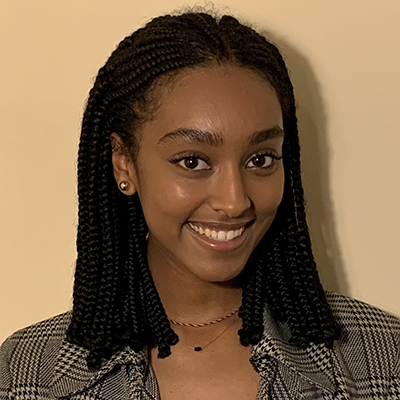
“Starting early with students and faculty in the School of Social Work, we can adjust the trajectory of the profession: remove bias, accelerate the quality for the now and for the future. … “As a social worker, it is important to be able to serve people from all backgrounds. In order to do that, one must be a part of the fight for racial equality. There are so many racial injustices going on all over the world today, and it is our duty as social workers to advocate for the members of oppressed groups. It is also important to dig deeper into our own prejudices/biases to ensure that we are helping members across all cultures equally. This will serve social workers well in the future and help us become more self-aware, which will overall make us more successful at our jobs. …
“I believe the Racial Justice Task Force will help develop my personal discipline and time management skills, which I can use in my career as a social worker. I believe this experience will develop my effective communication skills, which will help with self-advocacy. This is important as a future social worker because it will give me the knowledge needed to help my clients to the best of my abilities. My goal with this opportunity is to learn how to create spaces where my future clients’ can openly share their personal experiences.”
Categories Awards and honors, Education, Students
Comments